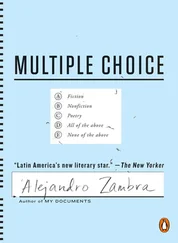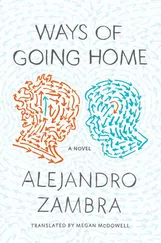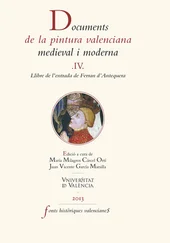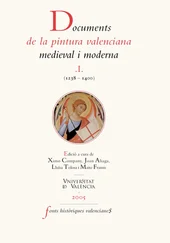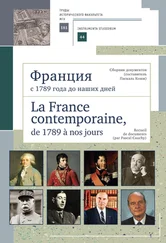“But you don’t like cats. You have a phobia.”
“No, I don’t have a phobia. I have a phobia with elevators, spiders, and pigeons. What’s that called?”
“What?”
“The fear of pigeons.”
“Colombophobia,” replied Daniel, exasperated. “Stop asking me stupid questions and tell me why you want the cats. You’ve never let the kid have one before.”
“It’s just that Lucas talks to me about them a lot. I’d like to have them live with us. And then give them away gradually, and keep only Pedra. I already talked to some girlfriends who would be thrilled to have a cat.”
Maru and Daniel fought like never before, or, rather, just like before. An inexplicable rhetorical twist had reversed things: not even the best lawyer in the world — and Daniel was not, certainly, the best lawyer in the world — could convince Maru that it was not her right to decide the fate of the cats. The negotiation was long and erratic, since Daniel wasn’t necessarily against the idea, but he hated to lose. He didn’t want them, really, except maybe Pedra — he did everything in his power to keep Pedra. At least ten times he said, “You can have the babies, but Pedra does not leave this house,” and all ten times he had to endure reasonable and dangerous arguments about a mother’s rights.
“You can have the white one, then, if you want her,” said Maru, finally.
“We don’t know if it’s a boy or a girl,” said Daniel, for the sheer pleasure of correcting her.
“Lucas thinks it’s a girl,” she replied. “But fine, that’s not the point. Do you or do you not want the white cat, boy or girl?”
He said he did. The day they moved the cats into the true house, the boy was happy.
Daniel still hasn’t decided what to name the white cat. He calls it Argentina or Argentino indiscriminately. When he flops into the armchair to read the paper, the cat comes to sit between the page and his eyes, kneading at his sweater, concentrating intensely.
“I’ve had to get used to reading standing up,” he says, glass in hand, to his neighbors, who have stopped in to say good-bye, because they’re returning to Barcelona soon.
“It must have been hard for you to lose the kittens,” says the playwright.
“It wasn’t too bad,” replies Daniel. “It must be harder to write plays,” he adds, obligingly, and then he asks them why they have to go, since he seems to remember that they were going to leave the following year. The question is, for some reason, inappropriate, and the playwright and his wife stare at the floor, maybe at the same point on the floor.
“It’s personal. Family problems,” says the woman.
“And were you able to write?” asks Daniel, to change the subject.
“Not much,” she says, as if she were in charge of answering the questions directed at her husband. The scene strikes Daniel as grotesque, or at least embarrassing — above all because of that slippery expression “family problems.” He’s been in a good mood, but suddenly he is lost, or bored. He wants them to leave soon.
“And what did you want to write about?” he asks, without the slightest interest.
“He doesn’t know. He doesn’t know what about,” she says. “Maybe about the transition.”
“What transition?”
“Chile’s, Spain’s. Both, in comparison.”
Daniel quickly imagines one or two boring plays, with actors who are very old or too young, bellowing like they are at the market. Then he asks how many pages the playwright has written in Santiago.
“Fifty, seventy pages, but none of it works,” answers the woman.
“And how do you know that none of it works?”
“I don’t know, ask him.”
“I am asking him. All of these questions have been for him. I don’t know why you answered.”
The playwright is still aggrieved. The woman is caressing his hair. She whispers something to him in Catalan, and right away, without looking at Daniel, they leave the apartment. They are sad and offended, but Daniel doesn’t care. He feels, for some reason, furious. He drinks whiskey until dawn; from time to time the Argentine cat jumps up, compassionately, onto his lap. He thinks of his son. He feels like calling him but doesn’t do it. He thinks about saving money to buy a house on the beach. He thinks about changing something, anything: paint some walls, buy a few grams of coke, let his beard grow out, improve his English, learn martial arts. Suddenly he looks at the cat and he finds a name for it — a perfect, androgynous name — but immediately, in his drunkenness, he forgets it. How is it possible, so quickly, to forget a name? he wonders. And then he doesn’t think about anything anymore, because he drops onto the carpet and doesn’t wake up until the following afternoon. He finds, while grappling with his budding hangover, that he’s missed work, that he hasn’t heard his phone ring ten or fifteen times, that he’s missed many e-mails. The cat is sleeping beside him, purring. Daniel tries to see if it has a penis or not. “Nothing,” he says out loud. “You don’t have a cock. You’re a girl cat,” he tells it, solemnly. “You are a true girl cat.”
He gets up, prepares an Alka-Seltzer, and drinks it without waiting for the tablet to dissolve entirely. His head hurts, but he still puts on an album he’s discovered recently, a selection of old waltzes, tangos, and fox-trots that remind him of his grandfather. While he showers, the cat chases his shadow on the shower curtain. He sings, half aloud, more sad than happy, along with a silly song—“Once a blonde was ready to die / for my love / not a lie / When her father found out / he got so mad / He tried to wipe me right off the map.”
Then he lies down on the bed for a few minutes, with the towel around his waist, still wet, like he always does. The phone rings: it’s the playwright, who wants to apologize for the night before by inviting him to dine.
“In Chile we don’t ‘dine,’ in Chile we ‘eat,’” he answers. “And I don’t want to dine or eat. I want to jerk off,” he says, forcing a crude tone of voice.
“So jerk off, man, no worries, we’ll wait for you,” says the playwright, laughing.
“I’m not going over there,” replies Daniel, with melodramatic gravity. “I’m not alone.”
It’s two in the morning. The cat is sleeping on the computer keyboard. Daniel looks at himself in the bathroom mirror, maybe searching for scratches or bruises. Then he lies down and masturbates mechanically, without thinking about anyone. He wipes the semen on the sheets as he falls asleep.
MEMORIES OF A PERSONAL COMPUTER
It was bought on March 15, 2000, for four hundred thousand eighty pesos, payable in thirty-six monthly installments. Max tried to fit the three boxes into the trunk of a taxi, but there wasn’t enough room, so he had to use string and a bungee cord to secure everything; it was a short trip, though, only ten blocks to Plaza Italia. Once in the apartment, Max installed the heavy CPU as best he could under the dining-room table, arranged the cables in a more or less harmonic way, and played like a kid with the Bubble Wrap it had been packaged in. Before solemnly starting up the system, he took a moment to look at everything deliberately, fascinated: the keyboard seemed impeccable to him, the monitor, perfect, and he even thought that the mouse and speakers were somehow pleasant.
He was twenty-three years old, it was the first computer he’d owned, and he didn’t know exactly what he wanted it for, considering he barely knew how to turn it on and open the word processor. But it was necessary to have a computer, everyone said so, even his mother, who’d promised to help him with the payments. He worked as an assistant at the university and he thought that maybe he could type up the reading tests, or transcribe his old notes, written by hand or laboriously typed on an old Olympia typewriter on which he had also written all his undergraduate papers, provoking the laughter or admiration of his classmates, who were, by then, all using computers.
Читать дальше

